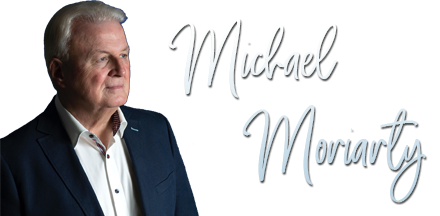Organisations and entities which employ people have an organisational culture that sets out the expectations for employee behaviour. Usually, the culture of the organisation is embedded in the mission, values, objectives and expectations which seek to define acceptable behaviour within the organisation while also seeking to shape perceptions, attitudes, and understanding. The best organisations will always promote shared beliefs, values and practices which will enhance employee morale.
The morale of the organisation reflects the feelings of people within the organisation at any given time and therefore reflects a general sense of attitudes and emotions. A positive work culture builds morale so culture and morale are intrinsically linked. When morale is high the overall attitude and satisfaction level of employees is reflected in relationships, teamwork and productivity. If there is a high satisfaction level towards work, there will be less negative behaviour, less workplace stress and improved workplace relationships. Employees will tend to give their best and stay longer with the organisation when morale is high.
Morale within an organisation will impact levels of commitment and the quality of work relationships. Morale is hugely relevant for the health and wellbeing of the organisation. It reflects the overall attitude and outlook of those employed by the organisation. As morale is linked to workplace culture it will have an impact on productivity and relationships. It is important therefore to maintain a positive workplace culture and high morale.
Leaders have an obligation to ensure, as far as practicable, a healthy workplace, especially when remote work has become a normal feature in the new hybrid workplace model. In order to successfully promote and maintain positive behaviour, leaders have to be trusted as people who show they are impartial, honest, respectful and well-meaning. They must clearly show that morale, work-life balance and wellbeing are important priorities.
Good leaders are trusted to address issues and explore problems and this requires good listening and communication skills. They are responsible for creating and maintaining a healthy workplace. They will recognise achievements and accomplishments; they will support employees through the provision of relevant professional learning opportunities.
High morale amongst employees creates many benefits such as greater job satisfaction, higher rates of productivity, better physical and mental health and overall better commitment to the vision and values of the organisation. Teams and individuals are far more likely to feel motivated, positive and act with greater purpose and meaning because of their enhanced commitment and sense of wellbeing.
In contrast, an organisation with low employee morale will have diminished productivity, less collaboration, more workplace stress and potential for conflict or fractious relationships. Often this may lead to poor performance and outputs, as well as absenteeism and regular staff turnover.
When employee morale is undermined it will become far more difficult to repair, as relationships and trust are damaged. Rebuilding employee and team morale will be a major challenge for any good leader because the workplace culture will have been damaged and diminished. All leaders need to be alert to every and any incident that can negatively impact positive workplace culture and working environment. Their primary objective will be to restore belief in the organisation if they are to recreate and maintain a healthy workplace.
The covid pandemic has re-structured the workplace with a more flexible working environment which may include remote working. This presents new challenges to leadership in terms of effective and regular communication as leaders need to show real empathy for the circumstances of remote-working staff. Poor communication, direction or transparency can easily and quickly undermine remote workers who may feel isolated and disconnected. In addressing remote work challenges, leaders must break down silos and maintain a community of employees who have a clear sense of belonging.
In today’s fast-changing world, as economies emerge from the devastating impact of the covid pandemic, organisations are striving to rebuild workplace communities, break down silos and promote wellbeing in the workplace. As hybrid working is becoming the norm for many organisations the challenge is to turn hybrid teams into high-performing teams. Adaptability and flexibility will characterise the best-performing organisations and the best leaders will cultivate inclusive workplaces with high morale and employee engagement.
Leading change has always been a key leadership objective. Leading and inspiring employees in a post-pandemic era will require resilient leadership and leaders who have a clear vision and strategy as well as clarity of purpose and decisiveness in action. The focus has transitioned from crisis control to the “new normal”.
As the world emerges from the pandemic crisis leaders will be judged on how well they have maintained morale in their organisations as they adapt to the new realities. Those leaders who unite empathy with adaptability are the most likely to succeed.
(Photo by Leon on Unsplash)

